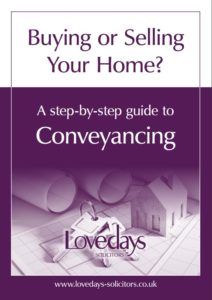- You & Your Family
- Your Job
- Family Law
- Divorce and Separation
- Finances on Divorce
- Dissolution of Civil Partnership
- Separation
- Cohabitation Agreements
- Finances on Breakdown of Cohabitation Relationship
- Prenuptial Agreements
- Grandparents' Rights
- Step-Parents' Rights
- Child Maintenance
- Parental Responsibility
- Paternity Disputes
- Buying Property Jointly
- Probate
- Wills
- Your Property
- Conveyancing
- Partnerships
- Disputes
- Boundary Disputes
- Dealing with Rent Arrears
- Japanese Knotweed Claims
- Landlord and Tenant Disputes
- Landlord Harassment & Illegal Eviction
- Negligence Claims Against Builders & Developers
- New Build Property Disputes
- Noisy Neighbour Disputes
- Personal Debt Collection
- Property Misrepresentations Claims
- Rights of Way Disputes
- Section 21 No Fault Evictions
- TOLOTA Claims
- Tree & Hedge Neighbour Disputes
- Your Business
- About Us
Grandparents' Rights: Support and Advice
There are many laws in place to protect the rights of parents when it comes to the care of their children and their responsibilities for them, especially if a relationship breaks down. However, what is not always as clear is what the rights of the grandparents of those children can be, and this can often be forgotten. In UK law, there are very few automatic legal rights for grandparents, so it is important to understand exactly where you stand and what you are entitled to as a grandparent.
At Lovedays Solicitors, we are experts in family law, and can offer fair and sensitive legal advice for grandparents to help them navigate their rights within the law.
Overview of Grandparents' Rights
When a relationship ends, grandparents can often find it more difficult to see their children when rights of access and custody are being decided. They may also find that they are unable to see their grandchildren because the parents have moved away or estranged themselves. In England and Wales, there are no automatic legal rights for a grandparent to see their grandchildren, however, there are informal arrangements and court orders that can be put in place to allow this, depending on the situation.
Grandparents are therefore not able to demand contact or make any decisions on behalf of their grandchildren. If you wish to have access to your grandchildren when a parent has stopped you from seeing them, then it may be necessary to apply to the court for a court order, and each one will be granted based on individual circumstances.
Legal Framework Governing Grandparents' Rights
It is important to remember that there are no automatic rights for grandparents in any part of the UK, but the methods for pursuing this can vary according to whether you live in England, Wales, Scotland or Northern Ireland.
As a grandparent does not have parental responsibility, they will need to seek permission to apply for a court order if one or both parents are preventing you from seeing your grandchild.
The courts understand that grandparents can play an important role in the life of a child and will look at the relationship that you had with your grandchild and the reasons why contact has stopped to determine whether a court order would be in the best interests of the child.
The court may then grant you the right to apply for a Child Arrangement Order but success for this is still not guaranteed and may require further hearings before a ruling can be made.
{quote}
Circumstances Influencing Grandparents' Rights
Whilst many situations involving grandparents rights stem from the grandparent wanting to spend more time with a child, there can be other situations which may be a factor. In some cases, a grandparent may want to request guardianship or visitation rights and is usually done when the parents of the child are unable to care for them This will involve obtaining temporary or permanent custody known as special or legal guardianship and will be granted if it is deemed to be in the best interests of the child.
A parent may choose to deny a grandparent the right to see their children. In this case, grandparents are required to try and secure visitation rights, which will determine how frequently they can see their grandchildren, how long for and whether visits should be supervised or unsupervised.
It is important to remember that there can be many different circumstances which can change within a family and can therefore influence the rights of those involved. These situations can range from divorce to the death of a parent, and each event will need to be treated on an individual basis.
Limitations and Challenges
In the UK, parental rights are very thorough and wide ranging, giving parents plenty of options in regard to the access they have to their children and the responsibilities that they must maintain. However, it is very different when looking at the rights of the grandparents, who are left with very few avenues to pursue if they want to have contact with their grandchildren.
This can present a number of challenges when petitioning for rights, as there are no formal laws to protect them. If a grandparent decides to apply for a court order to see their grandchildren, they do not have any guarantees of success as each case will be judged on its own merits and it is therefore very important to seek proper legal advice to establish what you may be able to apply for and to do so correctly.
In order to petition for the rights to see your grandchildren, there will be a number of legal hurdles that will need to be overcome, including proof of your relationship to the child and any evidence relating to the circumstances in question, such as emails or messages from the parents of the child and proof of your previous relationship with the child.
The Process of Filing for Grandparents' Rights
When filing for grandparents rights, it is important to try and approach the parents directly and work out an informal agreement wherever possible. If this fails, then you will need to consider going through a mediation process. This can either help you come to a resolution, or if the mediation fails, you will be issued with a mediation certificate which will allow you to make your court application.
To apply to the court, you must submit a C100 application form. This will ask a number of questions about your situation, and it is important to remember to focus on why your grandchildren should be in contact with you, as it is their needs which are at the centre of the process. The court will then consider your right to contact and the type of contact that this should be, ranging from visits to letters and phone calls.
A Welfare Officer will be appointed to talk to all parties and investigate any relevant issues and send a report to the court to enable them to make an informed decision. If the court strongly recommends that the grandparents should be allowed to have contact, then you can ask the parents to allow this, but if they still refuse, you will need to attend a court hearing.
This will look at the evidence presented by all parties and the court will consider the report that was compiled by the welfare officer and what is in the best interest of the child themselves before deciding whether to put an order in place to allow contact.
This can be a lengthy and difficult process, and so it is very important that you seek professional legal advice from the start. This can help you to build your case in the correct way and guide you through the process to help you achieve the best outcome.
{quote}
Grandparents' Rights in Special Situations
There are some circumstances where the rights of grandparents can differ, particularly where one parent is absent from the life of a child, either because they are deceased, missing or in prison. In these types of special situations, grandparents still have no automatic rights, but they can seek permission to apply for a Child Arrangement Order. This will help to determine who the child should live with and who can have contact with them and will be done with the best interests of the child in mind. Where a parent has been lost, the court will consider the need to preserve links with their extended family and their identity.
If a child is adopted, then the situation can be more complicated. In the case of a closed adoption, a court will decide that it is best for the child not to have any contact with their natural family and grandparents will be forced to have a complete break in contact.
Open adoptions may grant some rights of contact with the natural family, but this will be decided on a case-by-case basis. Private adoption takes place when a child is adopted by relatives, and whilst there will not be an order to prevent contact, grandparents will have no automatic rights and their ability to maintain contact with the child will be decided on an individual basis.
Grandparents' Rights on the Death of a Parent
If your grandchildren’s parent or parents die, there is no automatic grandparents’ rights. However, it is possible for a parent or parents of your grandchildren to appoint you in their will as a guardian for their children in the event of their death. Such appointment does not automatically ensure that you will take over the legal rights for your grandchildren, but it may be a good indicator of the wishes of the parent with whom the children were living at the time of their death.
How Lovedays Solicitors Can Help
Lovedays Solicitors are experts in family law and can advise you on what rights you have as a grandparent. We will take the time to understand your situation and can advise you on what route to take and the outcomes that you can expect. We will help you to organise mediation and apply for court orders, and can draft documentation to help support your case.
We understand that this can be a very difficult time for everyone involved, and so we will ensure that everything is handled with the utmost sensitivity and professionalism at all times. Everyone at Lovedays Solicitors is dedicated to helping our clients by applying all of our years of experience and expertise to help obtain the best possible outcome for you and your family.
Conclusion
As grandparents are not automatically entitled to any rights when it comes to having contact with their grandchildren, it can be a difficult and emotional process. Whilst there are some routes that grandparents can take to maintain access to their grandchildren, there are no guarantees of success so it is important to obtain professional legal advice as early as possible.
All cases will keep the welfare and needs of the child at the heart of them, and at Lovedays Solicitors, we will help you to demonstrate why having contact with their grandparents will make their lives better.
{quote}
Frequently Asked Questions
Your son will only have parental responsibility over the child if he was married to the child’s mother at the time of birth or if his name is on the birth certificate. It is possible for him to apply for parental responsibility at any time if he can prove that he poses no risk to the safety of the child.
If the parents choose to ignore a court order that has been issued, then you can go back to court to explain how the order has been breached. The court will then enforce the order and the parents may face punishments.
If your mediation process has been successful, then you should have been able to negotiate the terms for seeing your grandchildren. This can be written into a Memorandum of Understanding and can help to resolve disputes that might arise in the future.
Dealing with Joanne at Lovedays Family department was always a positive experience. She made sure I fully understood my legal situation and her communication style, always so clear and concise, helped me navigate my way through a difficult time.
Get Support Today
If you are a grandparent struggling to maintain contact with your grandchildren, don't face this challenging journey alone. Reach out to Lovedays Solicitors today. Our expert team in family law is here to provide the fair and sensitive legal advice you need. We will guide you through every step of the process, from mediation to court applications, ensuring your case is handled with the utmost professionalism and care.
Let us help you secure the best possible outcome for you and your family. Contact Lovedays Solicitors now to arrange a consultation and take the first step towards re-establishing your bond with your grandchildren.

Free Guide
If you don’t know your leasehold from your freehold, then get our Free Conveyancing Guide. It contains details about the steps you will need to take with any property transactions. The Guide giving you detailed guidance on what your lawyer will be doing for you and what to look out for.


Lovedays Solicitors, Brooke-Taylors Solicitors, Potter and Co Solicitors and Andrew Macbeth Cash and Co Solicitors are the trading names of Derbyshire Legal Services Limited which is a company registered in England and Wales under company number 08838592. Registered office Sherwood House, 1 Snitterton Road, Matlock, Derbyshire, DE4 3LZ.
Authorised and Regulated by the Solicitors Regulation Authority under SRA ID number 637916.
-
01629 56660
-
This email address is being protected from spambots. You need JavaScript enabled to view it. -
Sherwood House
1 Snitterton Road
Matlock
Derbyshire
DE4 3LZ
© Copyright 2019 Derbyshire Legal Services Limited | Website by WebWorks